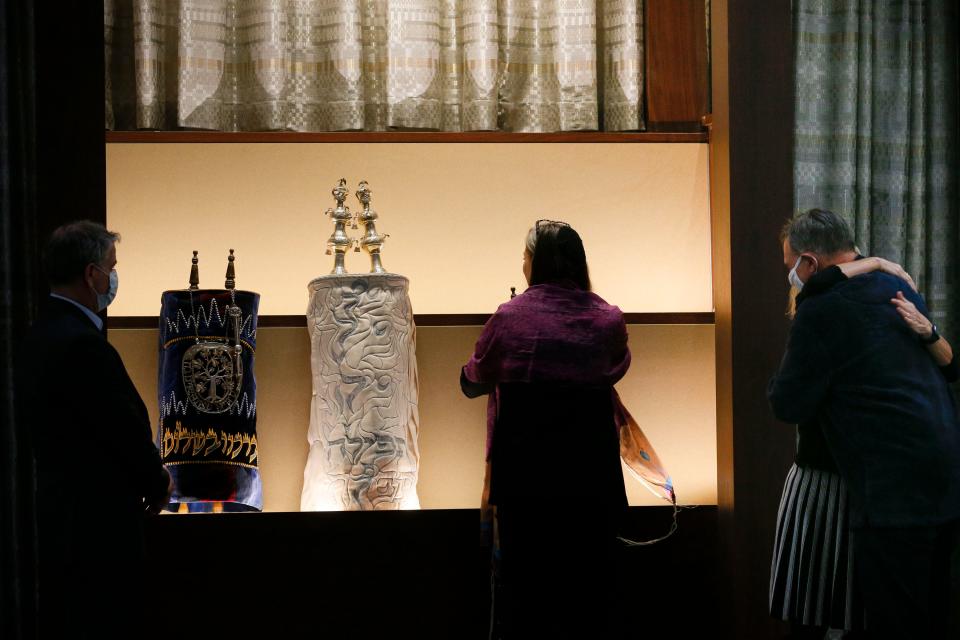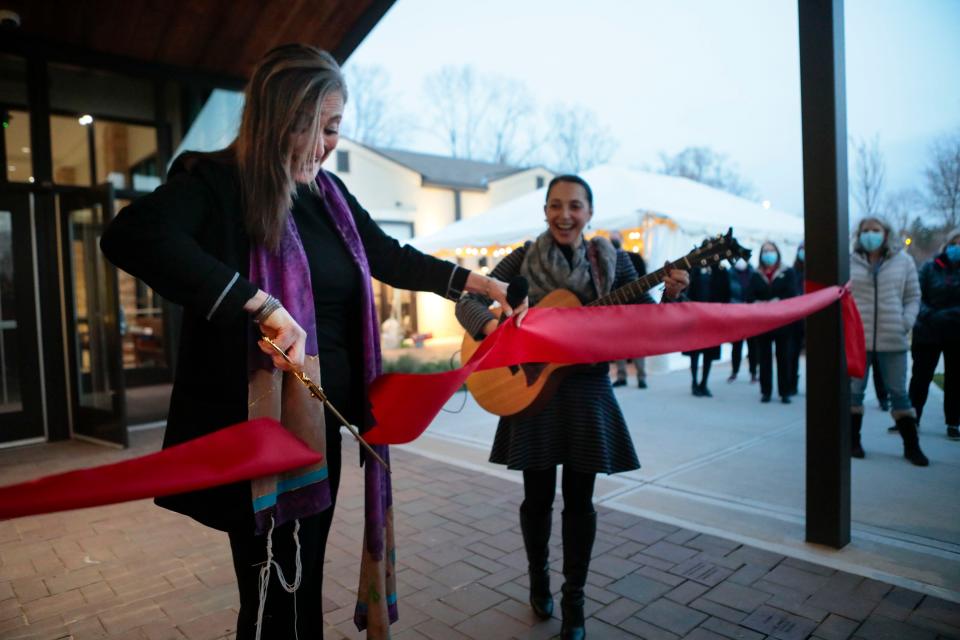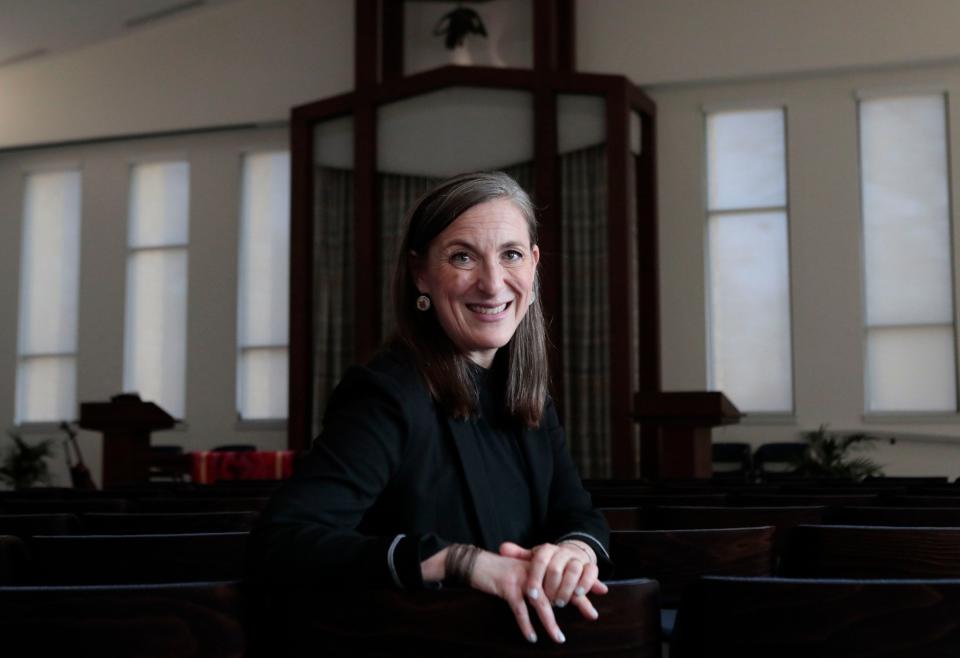Temple Israel opens new home after four years without its own worship space
The Temple Israel congregation has endured a lot of challenges in the past four years.
The biggest was the lack of a place to call home.
That ended on Sunday. The oldest synagogue in Greater Columbus — founded in 1870 with roots in the city stretching back another three decades — hosted an open house at its new location near Bexley, more than four years after leaving another East Side building it had called home for nearly 60 years.
"We're really excited," said Brian Tuckerman, 54, a member of the Reform Judaism congregation since birth, who served on the building committee. "It was a long time coming. Getting to this point, seeing it come to fruition, is really emotional."
Temple Israel's new home: Former church has been completely renovated, expanded
Although the structure, in the 3100 block of East Broad Street, is a renovated and expanded building purchased from Eastminster Presbyterian Church, it looks brand new both inside and out.

The exterior, originally red brick, has been wrapped in Jerusalem stone. The inside was stripped down to the studs and completely reimagined. The building also was expanded from about 12,000 square feet to more than 19,000 square feet.
The addition includes the sanctuary, bathed with light from windows along two sides, and featuring a soaring ceiling. There is a roomy social hall and expanded kitchen. The classroom space, for religious and Hebrew studies, has been doubled.
"Everything about this place is intentional," Senior Rabbi Sharon Mars said. "We have parking lots on either side, so we can make sure that we're facing west and we're facing east."
The idea is to be welcoming to everyone in the surrounding community.
"I hope people imagine themselves not only sitting here in a Shabbat worship service, but also imagine themselves coming here and donating blood or coming here to vote," said Jennah Scher, Temple Israel's executive director. "Those are things we had done in our previous location."
Their old home was more than three miles to the east, in the 5100 block of East Broad, by the East Outerbelt. They had been there since 1959, but at 60,000 square feet, it became too big and too difficult to maintain.
Leaving the building "was absolutely necessary," Tuckerman said. "We did not fill it and we didn't have the resources to manage it. It was falling apart."

After selling the old building to Baps Hindu and holding their last service there in July 2017, they found a location to the west that made more sense.
"What we did was a very pragmatic thing," Rabbi Mars said. "We moved closer to Downtown and closer to where our population of Jews lives, in this East Side neighborhood," just three blocks east of the Bexley city limits.
How Temple Israel coped without a congregation building and faced COVID-19 pandemic
While waiting for work to be completed on the new home, the synagogue started holding its worship services at the Jewish Community Center of Greater Columbus. Then the COVID-19 pandemic hit.
Like congregations of all faiths in Greater Columbus and around the nation, Temple Israel suddenly had to conduct services via video streaming and to connect with its members through social media.
"The fact that we endured through COVID and through several tumultuous years in this country, it's a gift to be as strong as we are and as resilient as we are," Mars said.
Through it all, the congregation managed to continue its partnerships with community groups and causes, such as its effort to battle opioid addiction by working with Maryhaven's Women's Recovery Center, an important part of its mission.
The congregation of about 550 households even added some members during the challenging transition.
"It's like having a broken bone that grows back stronger," Mars said. "There is a sense of instability brought on by not having a home. And you need a home. Especially in a world where antisemitism is on the rise, Jews really do need a space. A roof and four walls goes a long way."

Particularly a safe space.
Recent hate crimes, including the murders of 11 worshippers at a Pittsburgh synagogue by a lone gunman in October 2018, meant security became a significant concern for Temple Israel.
The congregation received state and federal grants for enhanced security, which wasn't anticipated when its plans were on the drawing board.
"We had to make sure that we are state-of-the-art in terms of our security systems," said Scher, the executive director. "It's pretty vital to our ability to be here, making sure that we feel comfortable and confident."
The congregation already feels comfortable in its new neighborhood. Even little things like sidewalks in the neighborhood make a difference.
"We didn't have sidewalks before," Mars said. "We want people to be able to walk here, to feel like we're proximate, to feel like they're our neighbors and that we can partner. I think that's what we do best."
jfutty@dispatch.com
@johnfutty
This article originally appeared on The Columbus Dispatch: Temple Israel celebrates opening of new home after four-year project

